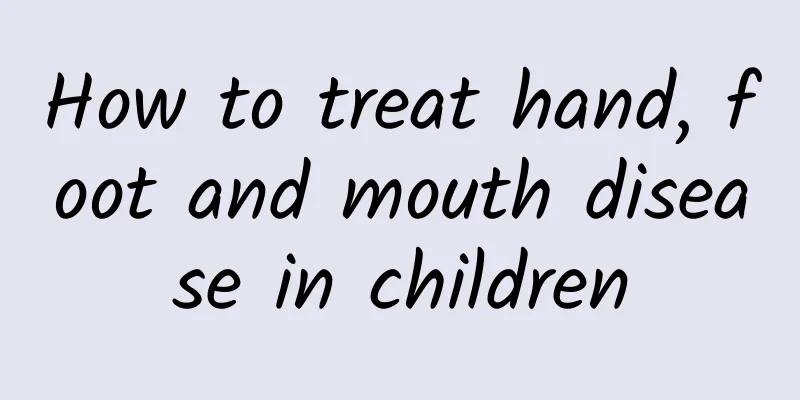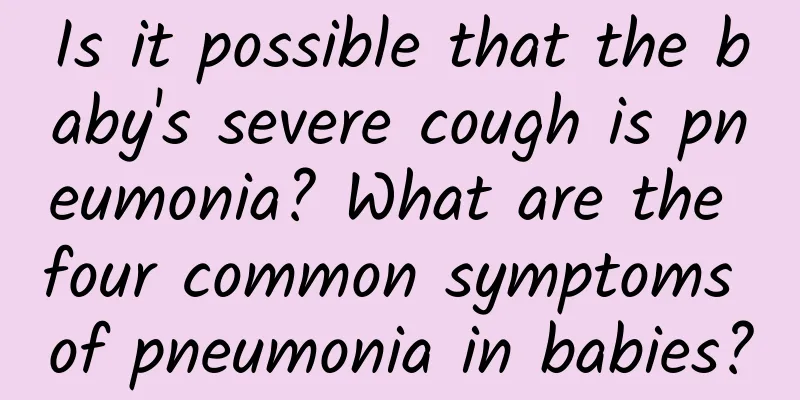How to treat hand, foot and mouth disease in children

|
Hand, foot and mouth disease in children is usually mild and can be relieved through home care and medication, but if a high fever persists or neurological symptoms occur, medical attention should be sought immediately. Treatment methods mainly include medication to relieve symptoms, dietary adjustments, and attention to hygiene protection. 1. Drug treatment Hand, foot and mouth disease is mostly caused by enterovirus. There is currently no specific antiviral drug, and treatment is mainly symptomatic: Antipyretics: such as ibuprofen or acetaminophen, are used to relieve fever symptoms. They must be used according to doctor's instructions to avoid excessive dosage that may cause side effects. Oral care medication: For herpes or ulcers in the mouth, you can use compound iodine rinse or children's oral care gel from the pharmacy to help relieve pain and promote healing. Topical medication: For rashes on the hands and feet, you can apply calamine lotion to reduce itching and prevent children from scratching the skin and causing infection. 2. Diet adjustment Children often refuse to eat during the illness due to the pain of oral herpes. Parents should provide light, easily digestible food: Recommended foods: such as rice soup, porridge, and warm milk. Avoid giving children spicy, sour, or overheated foods to avoid irritating the ulcer. Ensure water intake: Drink plenty of water to prevent dehydration. You can choose light salt water, warm boiled water, or light fruit juice for your child to drink. When oral ulcers are severe, using a straw to reduce pain is a good way. 3. Health protection measures Preventing bacterial infection and the spread of disease is an important part of recovery: Hand hygiene: After each feeding or handling of the child's secretions, hands must be washed thoroughly using running water and hand soap with bactericidal effect. Toy disinfection: Toys and tableware that children frequently touch should be rinsed and cleaned with hot water or disinfectant every day to avoid repeated spread of the virus. Isolation and observation: Hand, foot and mouth disease is highly contagious. It is best not to let children come into contact with other children. If necessary, report to the school or childcare institution to ensure the detection and prevention of hidden infections. If the symptoms of hand, foot and mouth disease are severe, such as high fever for more than 3 days, difficulty breathing, frequent vomiting, cold hands and feet, drowsiness, etc., you need to be alert to encephalitis or other complications. It is recommended to take your child to the hospital immediately for further examination and treatment. Family care during the onset of the disease is very important, and you should pay attention to changes in your child's condition. If you find any abnormalities or the condition worsens, you should get medical advice in time to ensure your child's early recovery and avoid sequelae. |
<<: Types, symptoms and treatment of pneumonia in children
>>: Is Yinzhihuang effective for infants with high jaundice?
Recommend
What kind of milk is best to drink in daily life? Drinking these 5 kinds of milk is good for your health
The best milk is mainly pasteurized milk, room te...
How to diagnose hand, foot and mouth disease
Hand, foot and mouth disease is a common childhoo...
Can you die if you have patent ductus arteriosus?
Will you die if you have patent ductus arteriosus...
Why does my baby have a dry cough at night? Is my baby's dry cough at night caused by rhinitis?
It is a common condition for children to have dry...
What to do if the baby has poor resistance
Most babies do not have particularly good resista...
What are the common pathogens?
Pathogens are invisible enemies that we need to b...
How to choose a hospital for jaundice treatment
Jaundice is a disease that poses a serious threat...
What causes Hirschsprung's disease?
The main cause of Hirschsprung's disease is t...
The main symptoms of hand, foot and mouth disease
The main symptoms of hand, foot and mouth disease...
What causes polio?
Everyone may be very familiar with a disease, tha...
How to treat children who keep coughing repeatedly?
If a child always has recurrent coughs, he can be...
Is jaundice 14.7 serious?
Jaundice 14.7umol/L means that the total serum bi...
How to take care of children with pneumonia
Pneumonia is not unfamiliar in our lives, but bec...
The difference between herpetic pharyngitis and hand, foot and mouth disease in children
The difference between herpangina and hand, foot ...
What are the symptoms of diarrhea and dehydration in children? Children with diarrhea should be alert to dehydration if they have these symptoms
If children suffer from diarrhea and are not trea...









